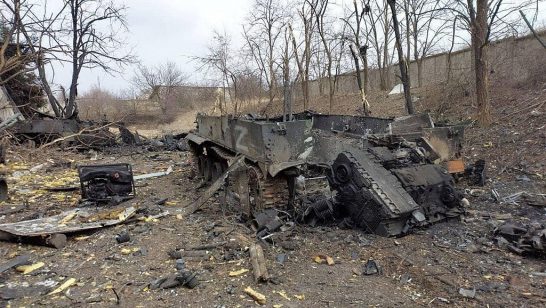
It will be difficult for Ambassador Gustavo Zlauvinen, the chairman of the Nuclear Non-Proliferation Treaty (NPT) Review Conference currently underway in New York, to build a consensus around a final document, a draft of which has just been released for further review and consultation. A balance will have to be reached between the traditional three pillars on which the treaty rests: the prohibition of the spread of nuclear weapons, the “inalienable right to nuclear energy” and nuclear disarmament. But “the elephant in the room” will inevitably be this time the war in Ukraine which has obvious implications for the NPT.
The military aggression by Russia, one of the five countries to which the NPT grants the privilege of possessing nuclear weapons, takes place against Ukraine, a country that renounced nuclear weapons by joining the NPT in 1994. Under strong international pressure, Ukraine also agreed at that time to deliver to Russia the Soviet nuclear weapons located on its territory, after receiving from Moscow the assurance that it would refrain “from the threat or use of force against the integrity and political independence of Ukraine’s territory” (the Budapest Memorandum). It was the current Foreign Minister Lavrov, then Russia’s Representative to the UN, who asked for this Memorandum to become an official UN document.
The fact that two large nuclear power plants, Chernobyl and Zaporizhzhia, are both now militarily occupied by Russian forces, constitutes an obvious source of nuclear risks. The responsibility for the safety of the plants falls on the occupying forces, regardless of who is firing from or against the power plants. The NPT RevCon participants must demand compliance with the rules on the prohibition of armed attacks against nuclear power plants in order to avoid a repetition of the Chernobyl accident of 1986. Disarmament diplomats have had a heated debate over whether the RevCon outcome document should specifically refer to the situation in Ukraine – which is mentioned in the current draft, although without an explicit reference to Russia itself – or whether the document should affirm the prohibition of attacks on nuclear power plants simply as a general principle.
The absolute priority of this year’s Review Conference must be to avoid the use of nuclear weapons, whether by mistake, accident or by an insane human decision. Such a risk is also being run in other world scenarios (India-Pakistan, China-Taiwan, Middle East, Korean Peninsula). But Europe is today’s greatest nuclear risk area, since it has become the theatre of a real war where the leader of a nuclear weapon state has announced the moving of his country’s nuclear arsenal to combat status, and where officials have repeatedly threatened the use of nuclear weapons. The threat of the use of force – and even more so the threat of nuclear weapons -– is prohibited by the UN Charter and constitutes one of the reasons for potentially expelling a country from the UN. In addition to the Charter, Russia is also violating numerous consensual NPT texts that prohibit the use and the threat of the use of nuclear weapons, especially against countries which, like Ukraine, have renounced nuclear weapons (in return for the the so-called “negative security assurances”).
Although the condemnation and punitive measures for the violation of international peace and security rest with the UN Security Council, the NPT Conference must address the catastrophic consequences of a possible use of nuclear weapons in the Ukraine war. Decisions at the NPT conferences are usually taken by consensus and Russia could easily block the consensus of any text condemning its invasion or its nuclear threats. But the NPT’s rules of procedure provide that, once all attempts at consensus have failed, “voting shall take place and decisions shall be taken by two thirds majority”. The gravity of the wounds to international norms in the case of the war in Ukraine will make it necessary – if consensus fails – to have recourse to a vote, and the Argentinian president of the conference might have the last word on such a decision. A vote already took place last March at the UN General Assembly where Russia’s invasion was condemned by an overwhelming majority. The member states of the NPT, which is the main international forum dedicated to nuclear issues, must prepare themselves for a similar scenario.



